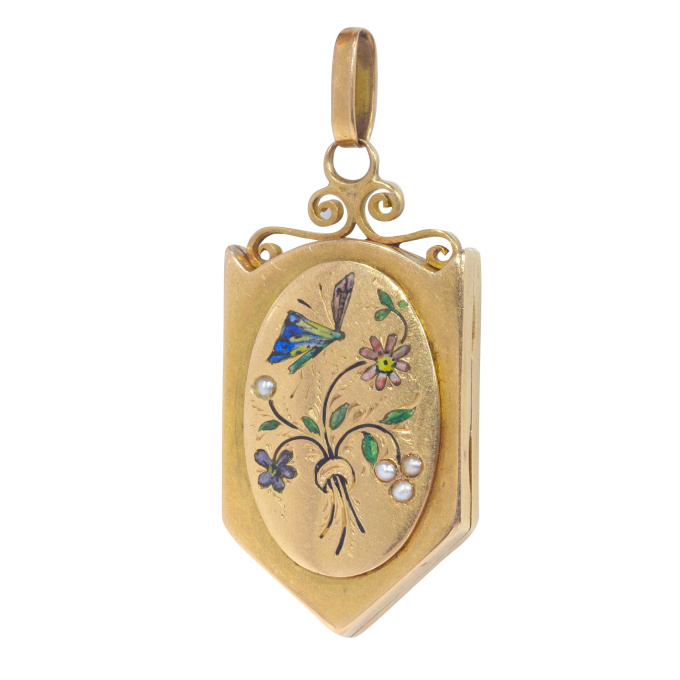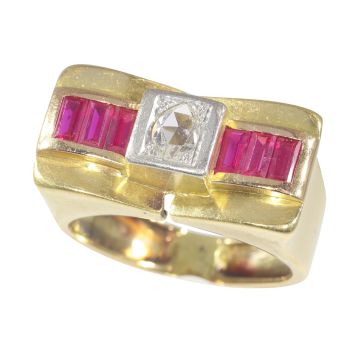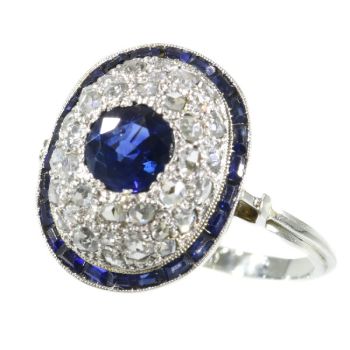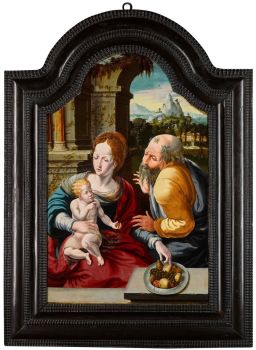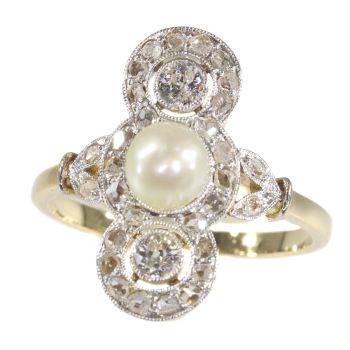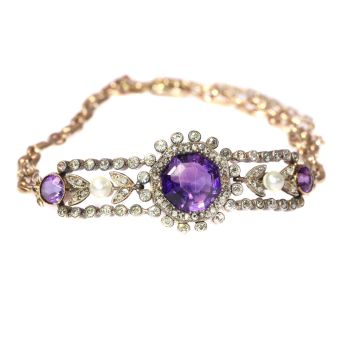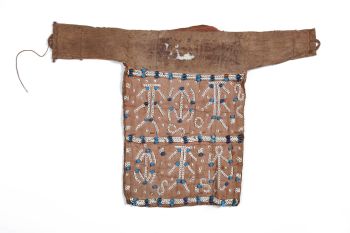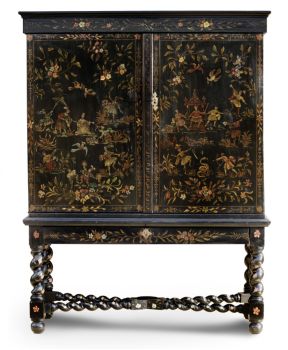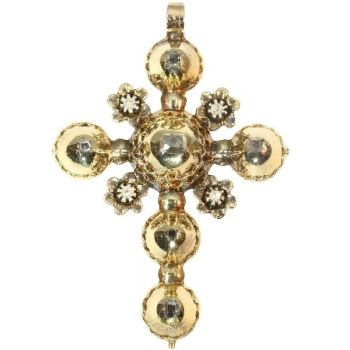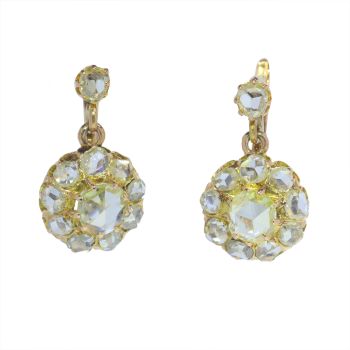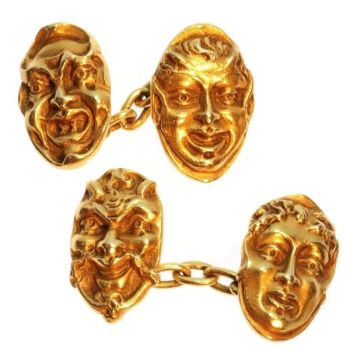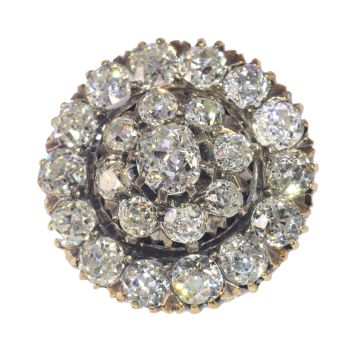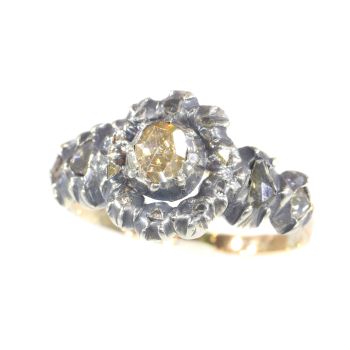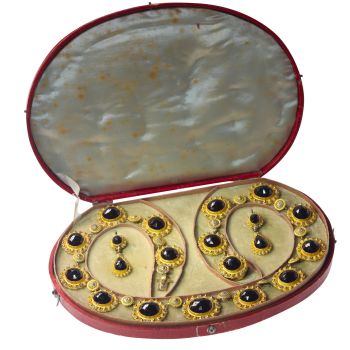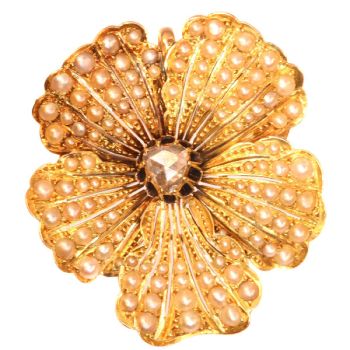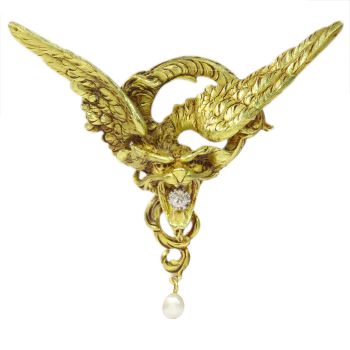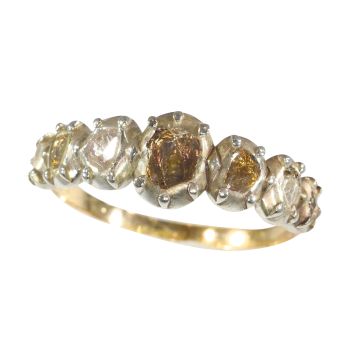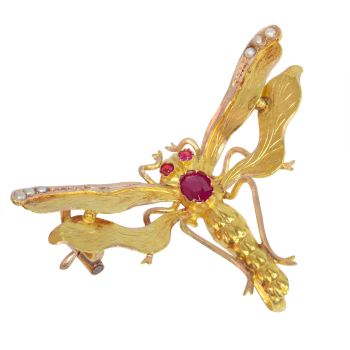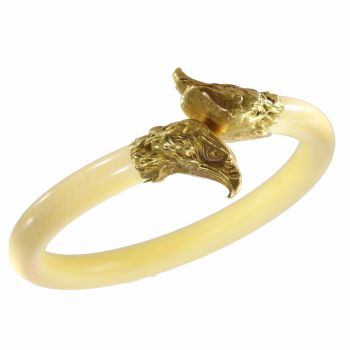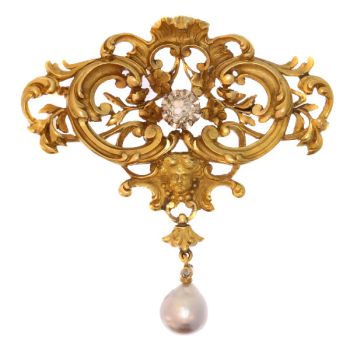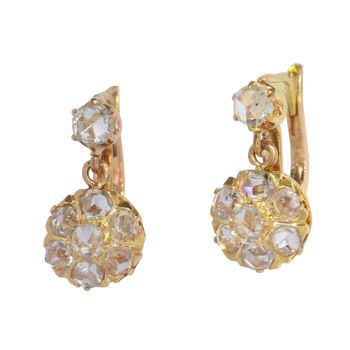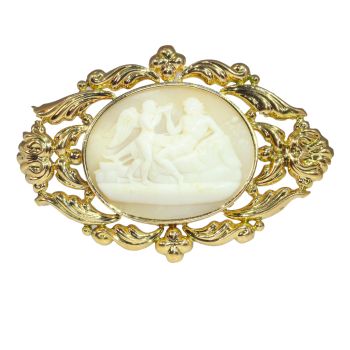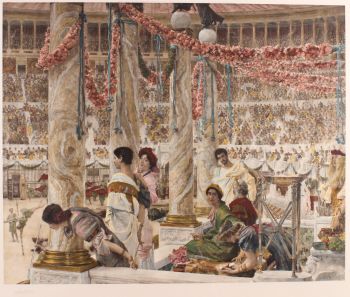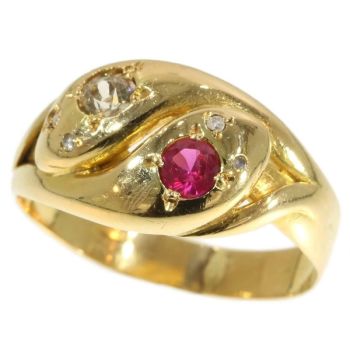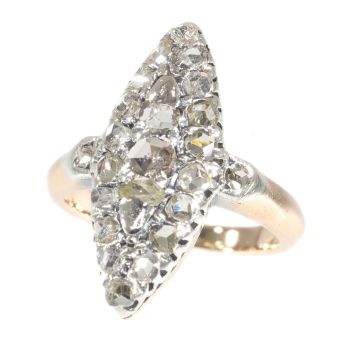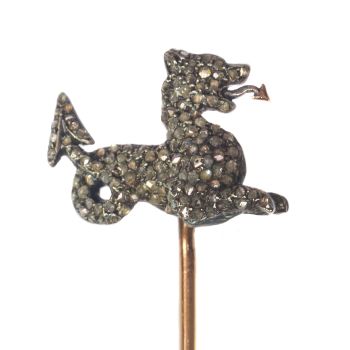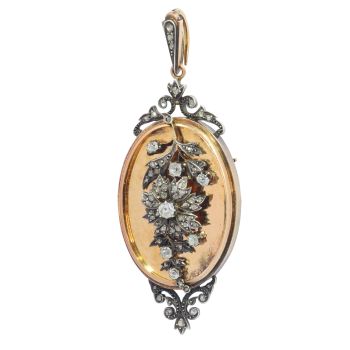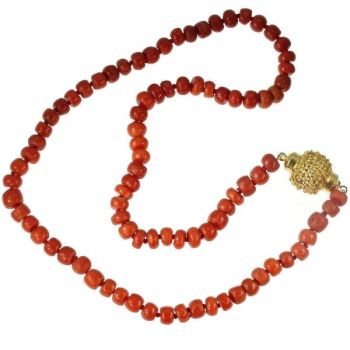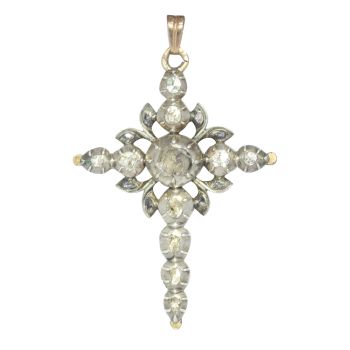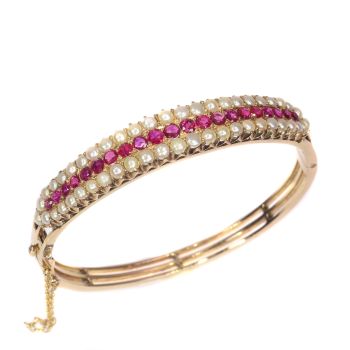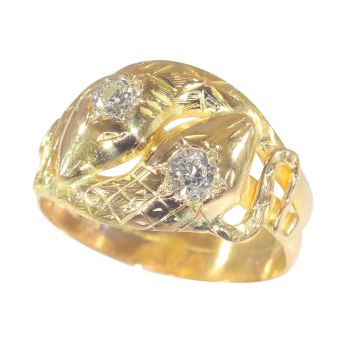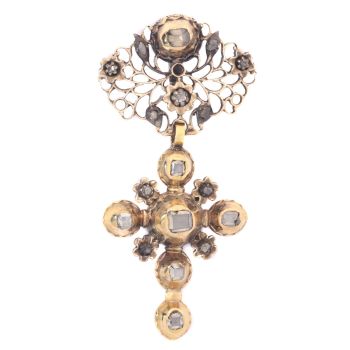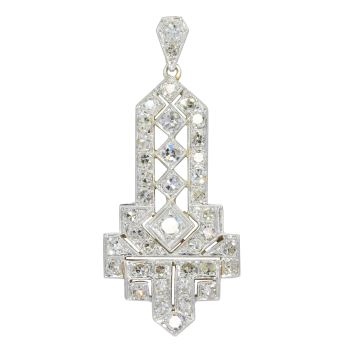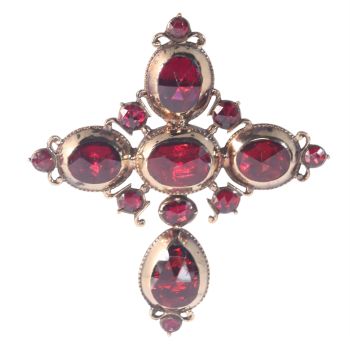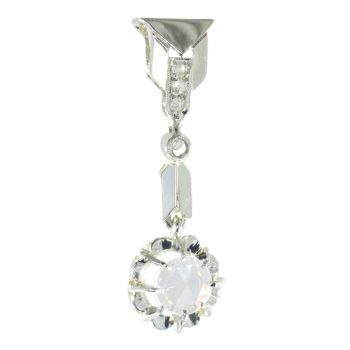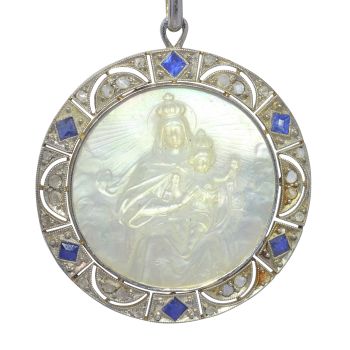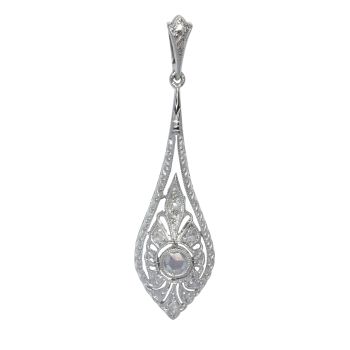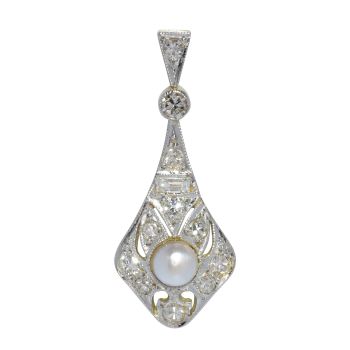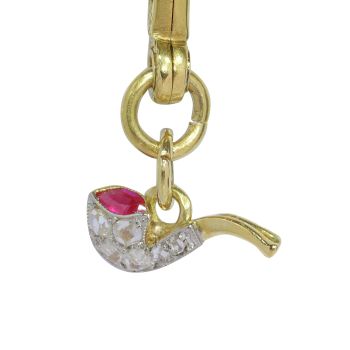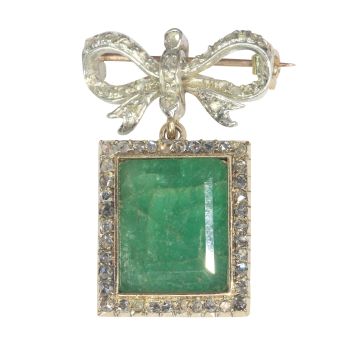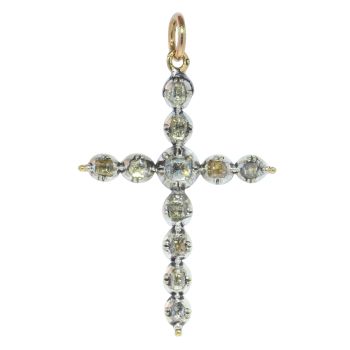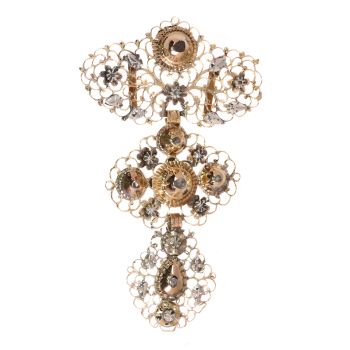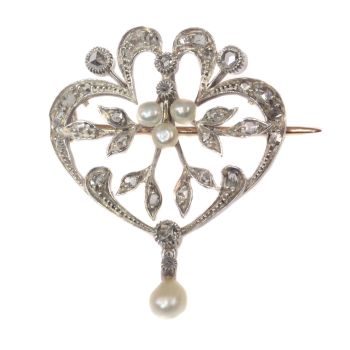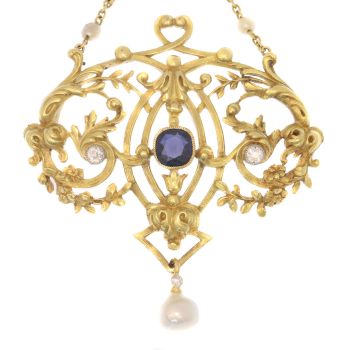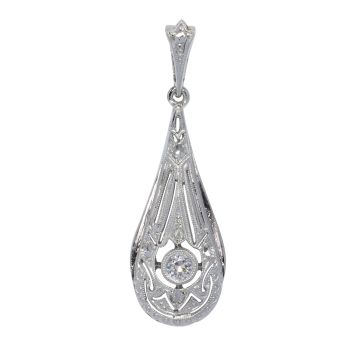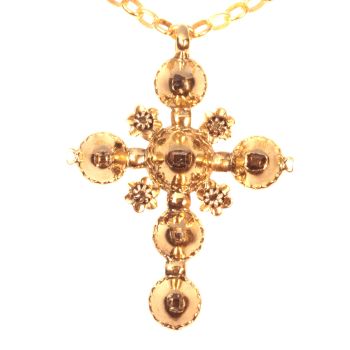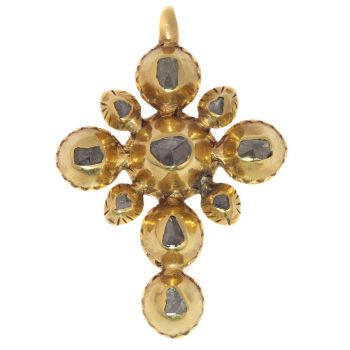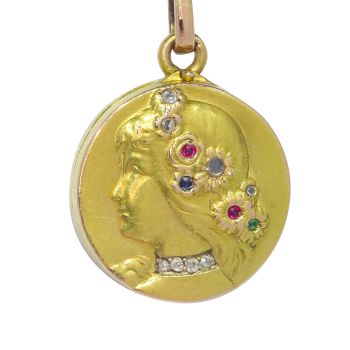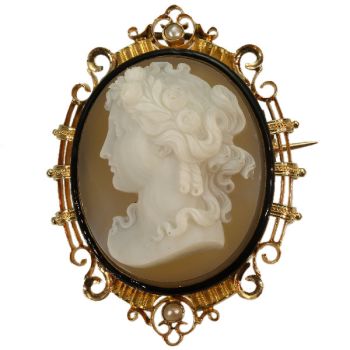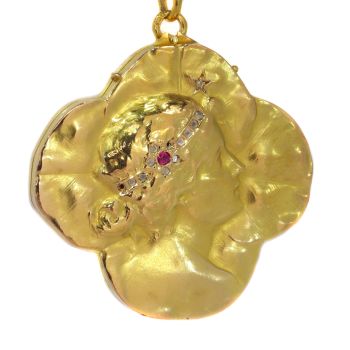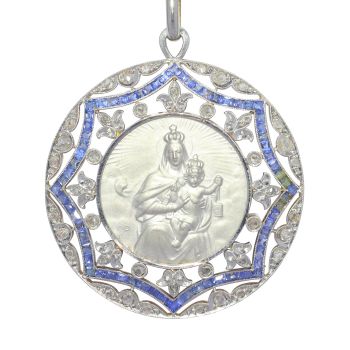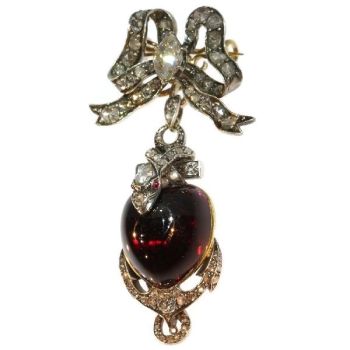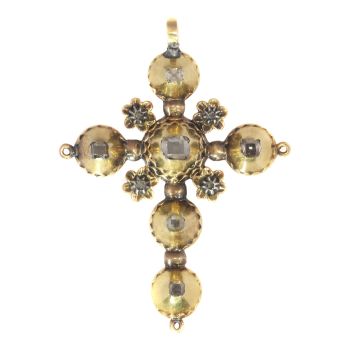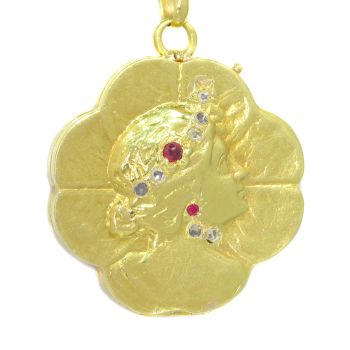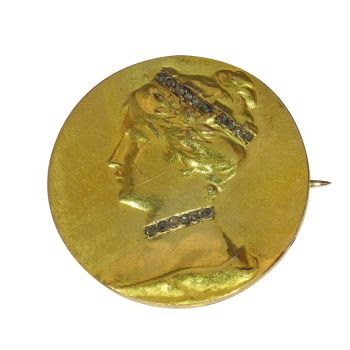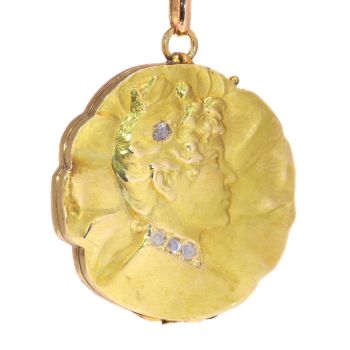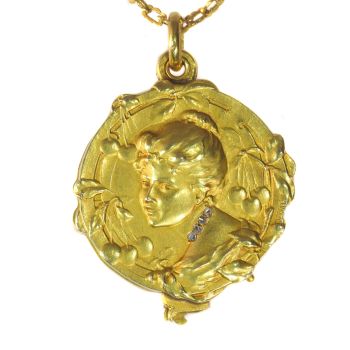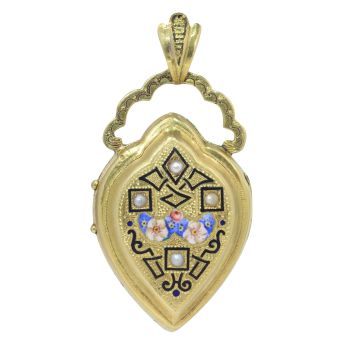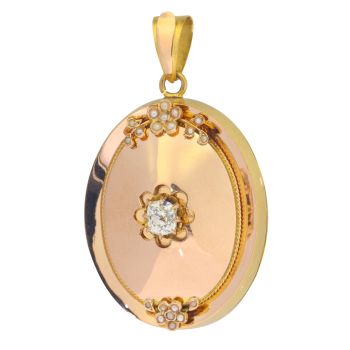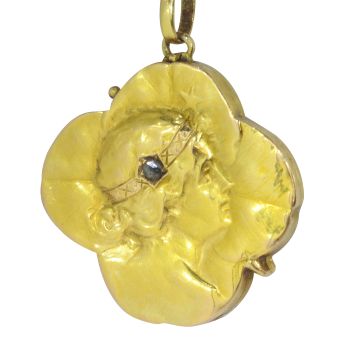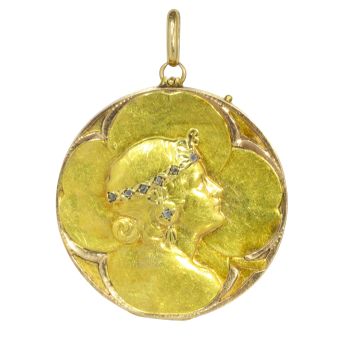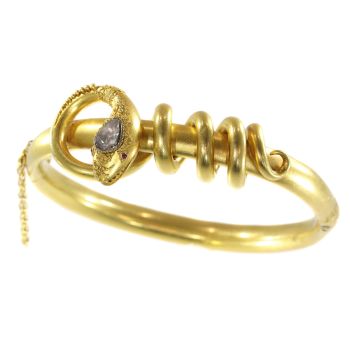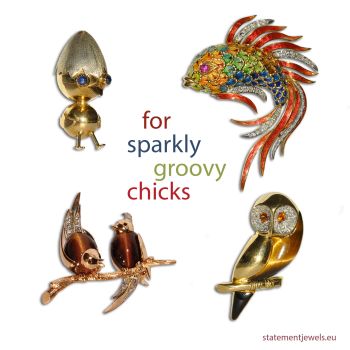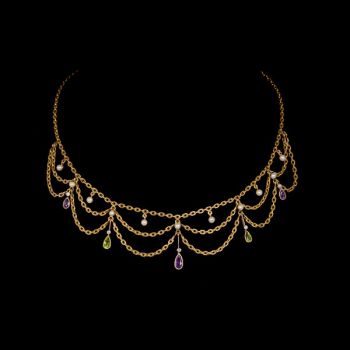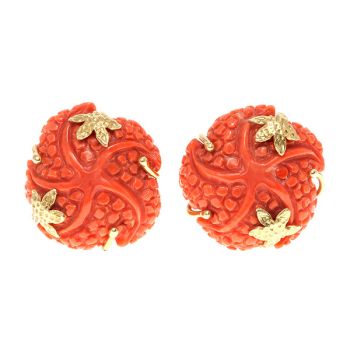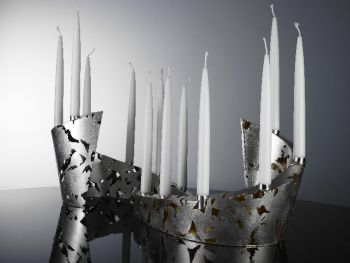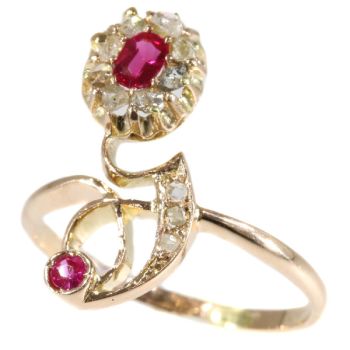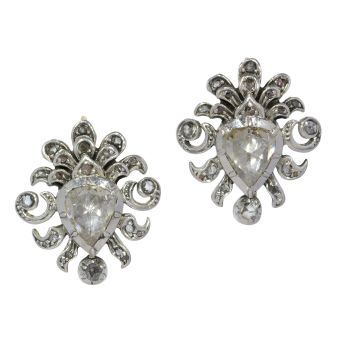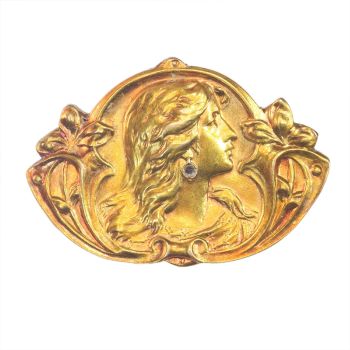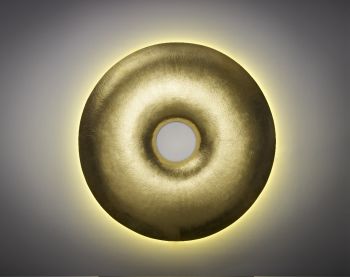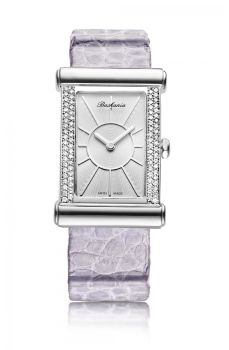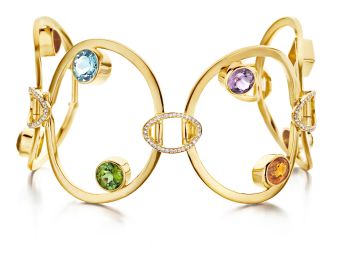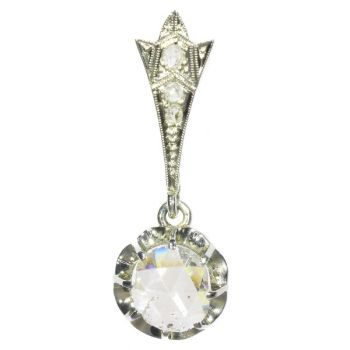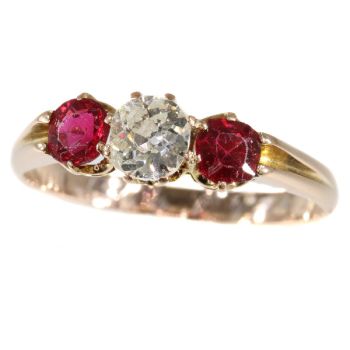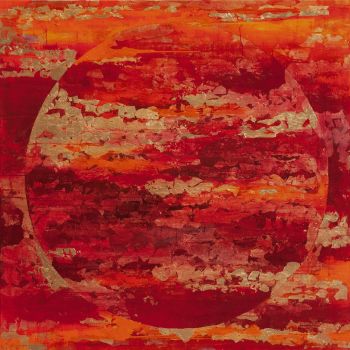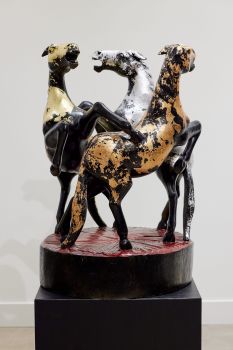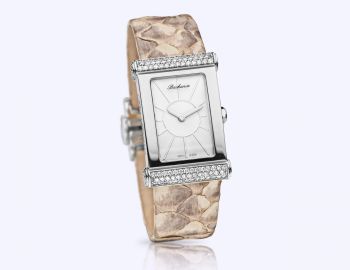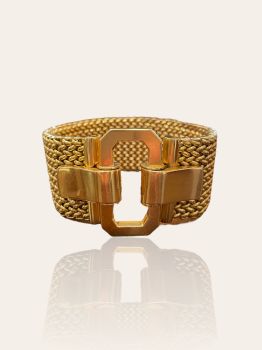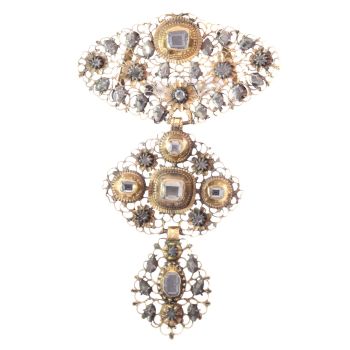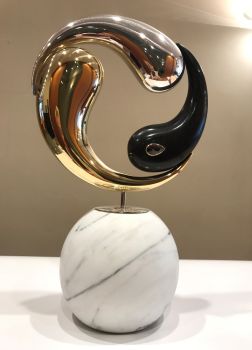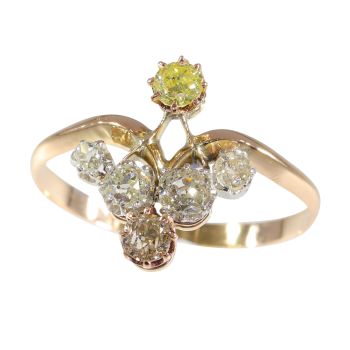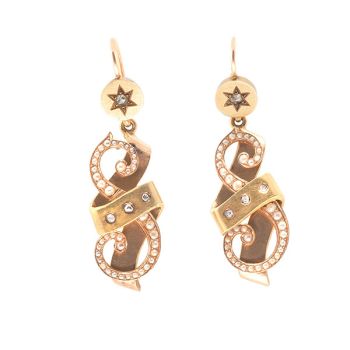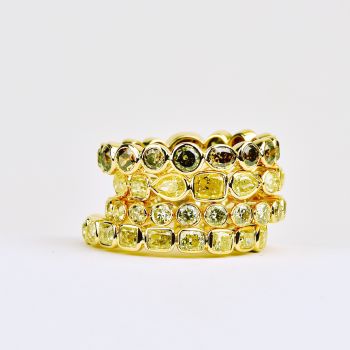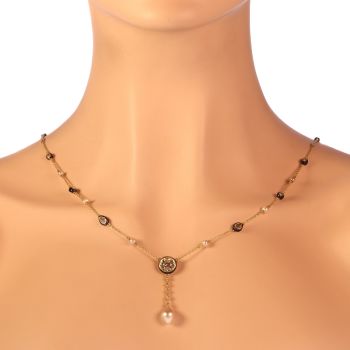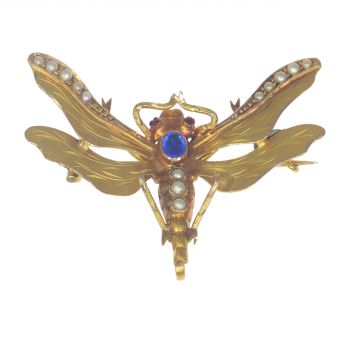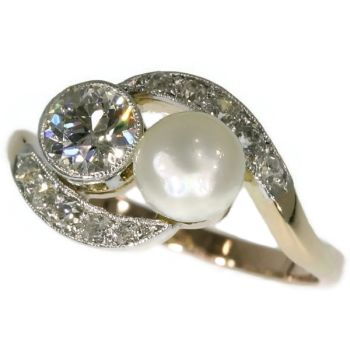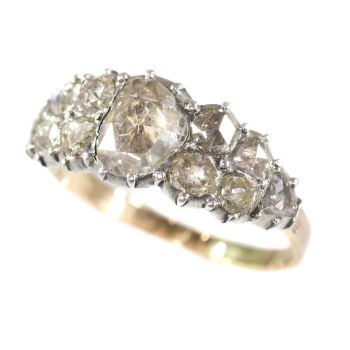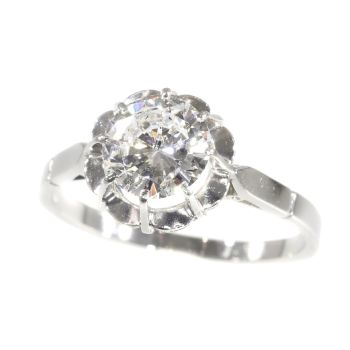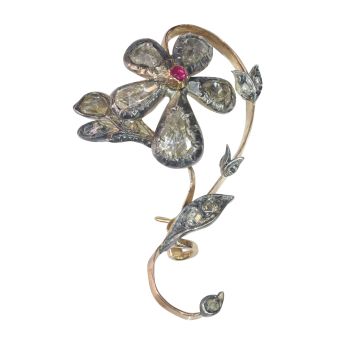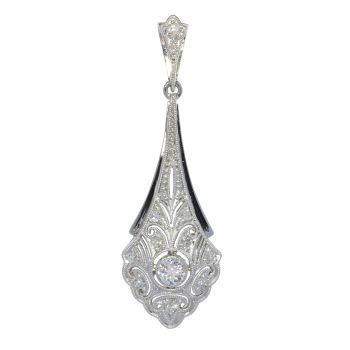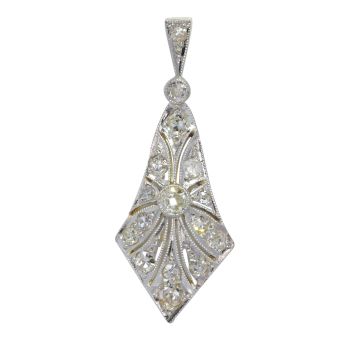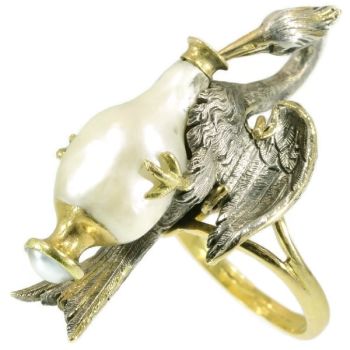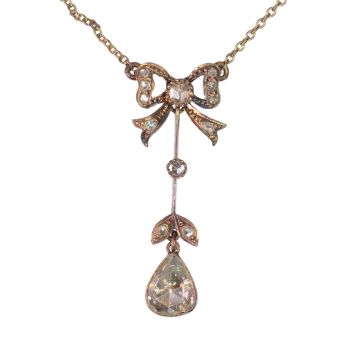Antique 18K French gold locket with enamel work butterfly on flowers 1890
Unbekannter Künstler
Adin Fine Antique Jewellery
- Über Kunstwerk
Antique jewelry object group
pendant/locket
Condition
very good condition
more info on our condition scale
Country of origin
France
Style
Victorian - Victorian decorative arts refers to the style of decorative arts during the Victorian era. The Victorian era is known for its eclectic revival and interpretation of historic styles and the introduction of cross-cultural influences from the middle east and Asia in furniture, fittings, and Interior decoration. Victorian design is widely viewed as having indulged in a regrettable excess of ornament. The Arts and Crafts movement, the aesthetic movement, Anglo-Japanese style, and Art Nouveau style have their beginnings in the late Victorian era.
See also: Victorian
more info on styles
Style specifics
The Late or Aesthetic Victorian Period - Experts divide the reign of Queen Victoria, also called The Victorian era (1837-1901) into three periods of about twenty years each; The Romantic Victorian Period (1837 - 1860), The Grand Victorian Period (1860 - 1880), and the Late or Aesthetic Victorian Period (1880 - 1901).
We consider this to be of The Late or Aesthetic Victorian Period.
Jewelry of this period is changing back from heavy to more smaller, romantic pieces with often whimsical motifs. Jewelers using diamonds and bright gemstones in elaborated and fine feminine pieces.
Period
ca. 1890
Events & facts of this era, poetry of this era, fashion of this era.
Source of inspiration
Mother Nature
Theme
butterfly on flowers
Material
18K pink gold (touchstone tested)
more info on precious metals
Technique
Enamelling is an old and widely-adopted technology. The ancient Egyptians applied enamels to pottery and stone objects. The ancient Greeks, Celts, Russians, and Chinese also used enameling processes on metal objects. Enamel is the colorful result of fusing powdered glass to a substrate by firing, usually between 750 and 850 degrees Celsius. The powder melts and flows and hardens to a smooth, durable vitreous coating on metal, glass or ceramic. According to some sources, the word enamel comes from the High German word smelzan (to smelt) via the Old French esmail. Used as a noun, "an enamel" is a usually small decorative object, coated with enamel coating, such as a champlevé or a cloisonné (different techniques).
Extra information
Butterfly - Artistic depictions of butterflies have been used in many cultures including Egyptian hieroglyphs 3500 years ago. In the ancient Mesoamerican city of Teotihuacan, the brilliantly colored image of the butterfly was carved into many temples, buildings, jewelry, and emblazoned on incense burners in particular. Today, butterflies are widely used in various objects of art and jewelry: mounted in frames, embedded in resin, displayed in bottles, laminated in paper, and used in some mixed media artworks and furnishings. Butterfly symbolism - A butterfly was seen in Japan as the personification of a person's soul; whether they be living, dying, or already dead. One Japanese superstition says that if a butterfly enters your guestroom and perches behind the bamboo screen, the person whom you most love is coming to see you. The Russian word for "butterfly", bábochka, also means "bow tie". It is a diminutive of "baba" or "babka" (= "woman, grandmother, cake"), whence also "babushka" = "grandmother". The ancient Greek word for "butterfly" is psyche, which primarily means "soul" or "mind". According to Mircea Eliade's Encyclopedia of Religion, some of the Nagas of Manipur trace their ancestry from a butterfly. In Chinese culture, two butterflies flying together symbolize love. Also, Butterfly Lovers is a famous Chinese folktale. In some old cultures, butterflies also symbolize rebirth after being inside a cocoon for a period of time. Some people say that when a butterfly lands on you it means good luck. The idiom "butterflies in the stomach" is used to describe a state of nervousness. (From Wikipedia)
Precious stones
Four half seed pearls
Birthstones
Pearl is the birthstone (or month stone) for June.
more info on birthstones
Hallmarks
The French control mark for 18K gold representing an eagle's head that was in use in France from about 1838.
more info on hallmarks
Dimensions
height 4,35 cm (1,71 inch)
see picture with a ruler in millimeters and inches
Weight
7,80 gram (5,02 dwt)
Adin Reference Nº
22152-0265
Copyright photography
Adin, fine antique jewelleryAdditional information
our latest acquisitions
jewelry glossary
wall of fame
visit us in Antwerp
subscribe to our mailinglist - Über Künstler
Es kann vorkommen, dass ein Künstler oder Hersteller unbekannt ist.
Bei einigen Werken ist nicht zu bestimmen, von wem sie hergestellt wurden, oder sie wurden von (einer Gruppe von) Handwerkern hergestellt. Beispiele sind Statuen aus der Antike, Möbel, Spiegel oder Signaturen, die nicht klar oder lesbar sind, aber auch einige Werke sind überhaupt nicht signiert.
Außerdem finden Sie folgende Beschreibung:
•"Zugeschrieben …." Ihrer Meinung nach wohl zumindest teilweise ein Werk des Künstlers
•„Atelier von ….“ oder „Werkstatt von“ Ihrer Meinung nach eine Arbeit, die im Atelier oder in der Werkstatt des Künstlers, möglicherweise unter seiner Aufsicht, ausgeführt wurde
•„Kreis von ….“ Ihrer Meinung nach ein Werk aus der Zeit des Künstlers, das seinen Einfluss zeigt, eng mit dem Künstler verbunden, aber nicht unbedingt sein Schüler
•"Art von …." oder „Anhänger von ….“ Ihrer Meinung nach eine Arbeit, die im Stil des Künstlers ausgeführt wurde, aber nicht unbedingt von einem Schüler; kann zeitgenössisch oder fast zeitgenössisch sein
•„Art von ….“ Ihrer Meinung nach ein Werk im Stil des Künstlers, aber späteren Datums
•"Nach …." Ihrer Meinung nach eine Kopie (jegliches Datums) eines Werks des Künstlers
• „Unterzeichnet …“, „Datiert …“. oder „Beschriftet“ Ihrer Meinung nach wurde das Werk vom Künstler signiert/datiert/beschriftet. Das Hinzufügen eines Fragezeichens weist auf einen Zweifel hin
• „Mit Unterschrift …“, „Mit Datum …“, „Mit Aufschrift ….“ oder „Trägt Unterschrift/Datum/Beschriftung“ ihrer Meinung nach die Unterschrift/Datum/Beschriftung von jemand anderem als dem Künstler hinzugefügt wurde
Sind Sie daran interessiert, dieses Kunstwerk zu kaufen?
Artwork details
Related artworks
- 1 - 4 / 12
Lawrence Alma-Tadema
"Caracalla and Geta: Bear Fight in The Coliseum, AD 203" 1907
Preis auf AnfrageGallerease Selected
 Kuratiert von
Kuratiert vonDanny Bree
Unbekannter Künstler
Enchanting 1870s Vintage Fly Brooch: Victorian Elegance in Gold1870
€ 4.600Adin Fine Antique Jewellery
 Kuratiert von
Kuratiert vonDanny Bree
1 - 4 / 24- 1 - 4 / 24
- 1 - 4 / 9
- 1 - 4 / 24
- 1 - 4 / 12

